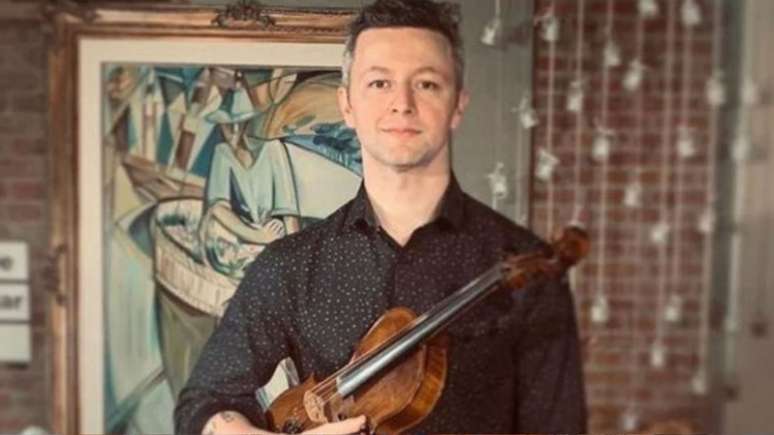The family of one of the detained Spaniards said he was “a tourist”, while Washington denies any involvement in the plot denounced by the Venezuelan government
Three North American citizens, two Spaniards and a Czech citizen have been arrested in the last few hours in Venezuela for their alleged participation in a plot aimed at destabilizing the country.
The announcement was made by the Minister of the Interior, Diosdado Cabello, who, in statements to Venezolana de Televisión (VTV), specified that the detainees were part of a group of 14 people who conspired to assassinate Venezuelan President Nicolás Maduro and other high-ranking government officials.
Accusing the US and Spanish secret services of being behind the plot, the minister also revealed that security forces had seized hundreds of firearms smuggled into the country.
The arrests came days after the United States sanctioned 16 Venezuelan officials for being “involved in Maduro’s fraudulent and illegitimate claims of victory and the brutal repression of freedom of expression” following the disputed July 28 presidential election.
The National Electoral Council (CNE) and, later, the Supreme Court of Justice (TSJ) declared Maduro the winner of the elections with 52% of the vote. However, they did not publicly present evidence to support this decision.
The opposition, in turn, published on a website 80% of the counting minutes to which it had access on election day and, according to them, the winner would be its candidate, Edmundo González Urrutia, with over 60% of the vote.
Both Washington and Madrid have denied any involvement in the alleged conspiracy.
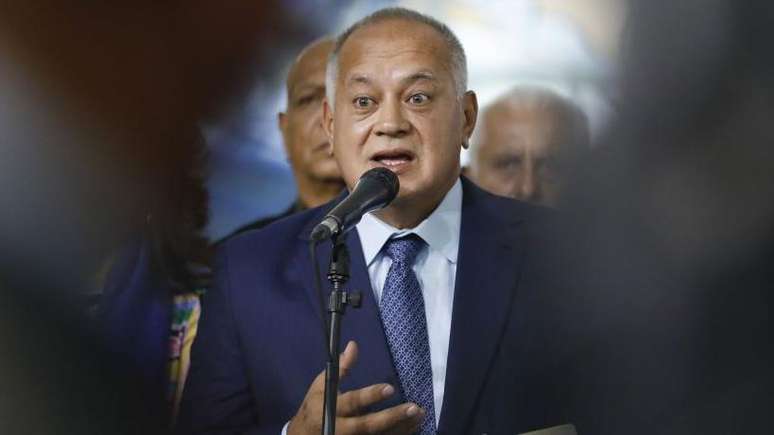
Not just the CIA
The alleged conspiracy adds to the long list of plots that the governments of the late Hugo Chávez and Nicolás Maduro have denounced over the past two decades.
While it is now customary for Venezuelan authorities to point to US security agencies, including the Central Intelligence Agency (CIA), as responsible for taking action against the government, this time a new actor has been included: Spain’s National Intelligence Center (CNI).
“The CIA is leading this operation and this does not surprise us; however, the Spanish National Intelligence Center has always kept a low profile, aware that the CIA operates in this region,” Cabello said.
The minister said that the detained Spaniards, identified as José María Basoa Valdovinos and Andrés Martínez Adasme, confessed that “they were trying to involve a group of mercenaries with very clear objectives: to assassinate President Nicolás Maduro, Vice President Delcy Rodríguez, me, and the other comrades who lead our party and our revolution.”
Cabello said the Spaniards were arrested near the airport in Puerto Ayacucho, the capital of the state of Amazonas, in the south of the country (710 kilometers south of Caracas), “in an irregular situation, while taking photos.”
Likewise, he claimed, without presenting any evidence, that contacts with members of the Vente Venezuela party, led by the opposition party María Corina Machado, and other opponents were found on the detainees’ phones.
“They have come into contact with mercenaries from France and Eastern countries and are trying to attack our country,” Cabello assured, adding that 400 firearms were seized during the operation.
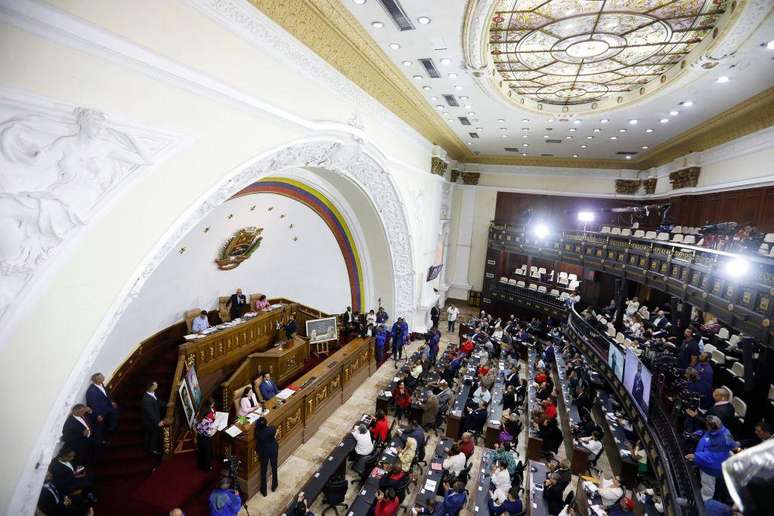
And finally, the minister promised to act rigorously.
“We will use all mechanisms to repel and defeat these groups of mercenaries and terrorists (…). We will be extremely strict and severe in defending the security and peace of Venezuela,” he said.
According to the organization Foro Penal, the minister’s words seem to anticipate a new wave of arrests, just when the country has already registered more than 1,600 arrests of people who participated in protests against the election results.
Earlier this year, Maduro claimed that, in the final months of 2023, Venezuelan security forces had dismantled five alleged plots against him, which he said had been orchestrated by his opponents.
Following these accusations, the government broke off negotiations with the opposition and arrested dozens of politicians, journalists and human rights activists.
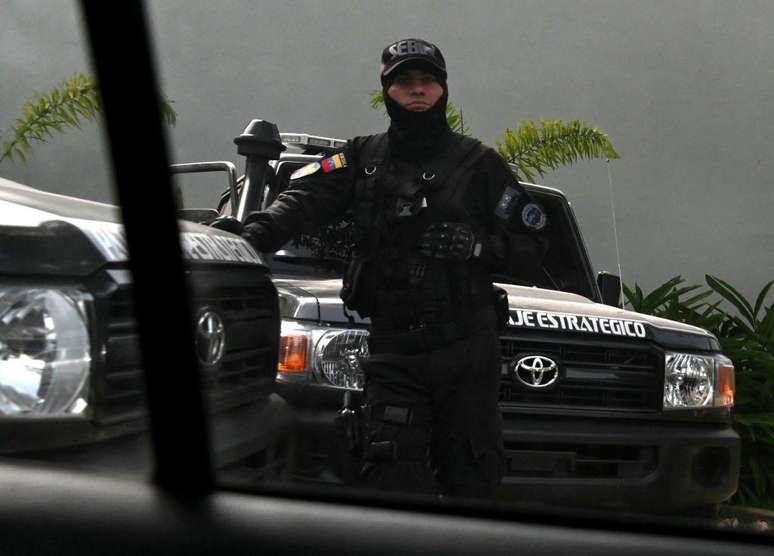
“My son does not work for the CNI”
The accusations made by Cabello have been denied by the families of the detainees. “My son does not work for the CNI at all,” the father of Andrés Martínez Adasme, one of those captured, told the Spanish newspaper *El Mundo*.
This version was confirmed by government sources in the Madrid newspaper *El País*, who also denied that the detainees were agents of the Spanish secret services.
The father also said that his son and the other inmate were on vacation in South America, but that on September 2, they lost contact with each other when they were both near the Colombian city of Inírida. “He disappeared during a trip to Venezuela and now he is in Caracas, that’s all I know,” added Martínez’s father.
The United States and Spain, for their part, have rejected Cabello’s accusations. “Any allegation that the United States participated in a plot to overthrow Maduro is categorically false,” the U.S. State Department said.
Washington said that the only support offered was “for a democratic solution to the political crisis in Venezuela.”
The Spanish authorities have expressed themselves in the same direction. “Spain denies and rejects any hypothesis of involvement in a political operation in Venezuela. The government has confirmed that the detained people are not part of the CNI or any other state body. Spain defends a democratic and peaceful solution to the situation in Venezuela”, reads a statement issued on Sunday by the government of the socialist Pedro Sánchez.
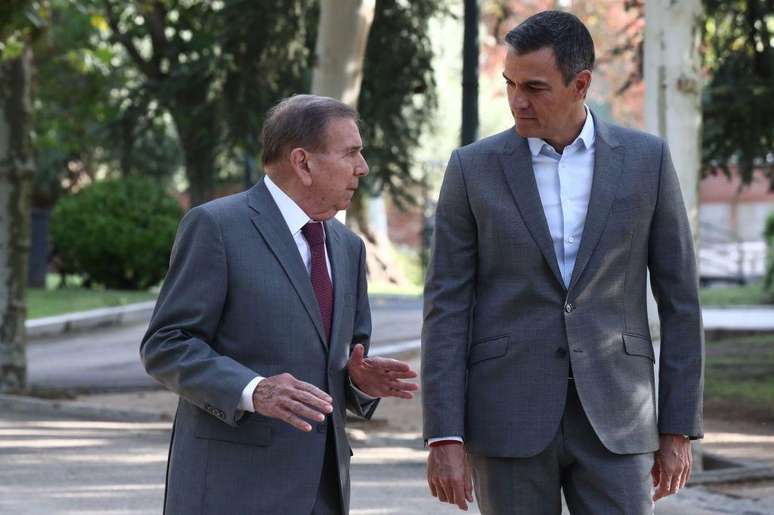
The Americans
Venezuela has not provided much information about the Americans in custody. So far, it is only known that one of the captured is a member of the US Navy named Wilbert Joseph Castañeda, an explosives specialist, who reportedly served in Afghanistan and Iraq, as reported by Cabello. As for the other two, the United States admits that it has not yet been able to confirm their situation.
The arrests only increase tensions between Caracas, Washington and Madrid. The recent wave of US sanctions against Venezuelan judicial and military officials has been firmly rejected by the Maduro government.
Furthermore, the arrests were announced exactly one week after opposition candidate Edmundo González Urrutia asked the Spanish government for asylum.
Although the departure of the opponent had been agreed upon, the symbolic decision of the Spanish Congress to recognize Maduro’s rival as the elected president of Venezuela, as well as the subsequent qualification of the Venezuelan government as a “dictatorship” by the Spanish Minister of Defense, Margarita Robles, were not well received in Caracas, which summoned its ambassador to Madrid.
*With additional reporting by Malu Cursino*
Source: Terra
Rose James is a Gossipify movie and series reviewer known for her in-depth analysis and unique perspective on the latest releases. With a background in film studies, she provides engaging and informative reviews, and keeps readers up to date with industry trends and emerging talents.

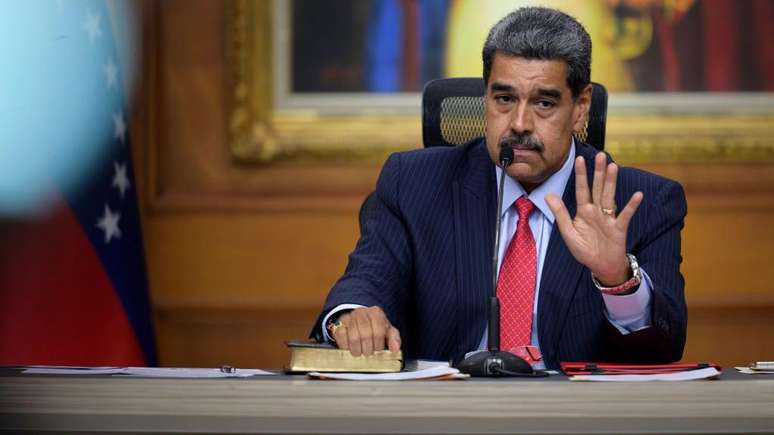
![It All Begins Here: What’s in store for Thursday 16 October 2025 Episode 1286 [SPOILERS] It All Begins Here: What’s in store for Thursday 16 October 2025 Episode 1286 [SPOILERS]](https://fr.web.img3.acsta.net/img/7d/99/7d99acbb3327f48a72b40f684092775e.jpg)
-qe1jxfyoo3eh.JPG)

